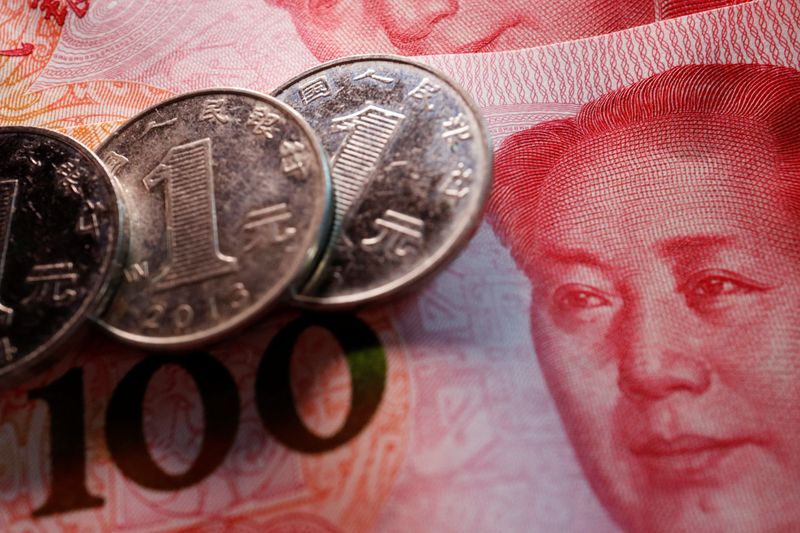SHANGHAI (Reuters) - China's yuan firmed past the closely watched 7-per-dollar level on Monday, hitting its strongest since mid-September, as Beijing eased some of its strict COVID-19 curbs, potentially attracting fresh foreign inflows.
The Chinese currency was also bolstered by expectations of slower U.S. interest rate hikes, which knocked the dollar index to near five-month lows.
But some warn that China's road for economic recovery could be bumpy and that the yuan will remain volatile.
Potential "policy U-turns or worsening of the infections could be seen as opportunities to short" the currency, Maybank said in a note to clients.
The onshore yuan jumped roughly 1.4% to as high as 6.9507 on Monday morning, its strongest since Sept. 13, tracking the central bank's firmer midpoint guidance.
Last week, the yuan jumped about 1.6%, its biggest weekly gain since 2005 amid expectations authorities will continue to loosen strict COVID curbs.
In the offshore market, the yuan gained 1.1% to a two-month high of 6.9438, after posting record weekly gains.
More cities, including financial hub Shanghai and Urumqi in the far west, announced an easing of curbs over the weekend as China tries to make its zero-COVID policy more targeted and less onerous after unprecedented protests against restrictions.
China's benchmark CSI300 index jumped nearly 10% in November, as mainland stocks witnessed monthly net inflows exceeding 60 billion yuan ($8.55 billion) via the cross-border Stock Connect scheme.
Morgan Stanley (NYSE:MS) on Sunday upgraded China's equities to overweight, citing "multiple positive developments alongside a clear path set towards reopening."
The Wall Street bank joined a slew of global institutions, including UBS and Goldman Sachs (NYSE:GS), in turning bullish toward China on expectations of an eventual reopening of the economy.
Standard Charted expects China's real urban household consumption growth to accelerate to 7% in 2023, from 0.2% in 2022, forecasting China will remove most COVID restrictions by the second quarter of 2023.

Maybank also attributed the yuan's strength to "the broader depreciation in the greenback." The dollar index has slumped nearly 9% from its Sept. 28 peak.
($1 = 7.0190 Chinese yuan)